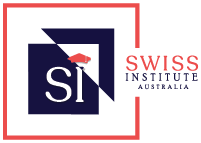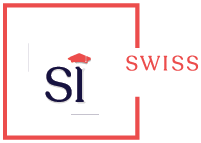Qualification Outline:
This qualification reflects the role of commercial cooks who use a wide range of well-developed cookery skills and sound knowledge of kitchen operations to prepare food and menu items. Using discretion and judgement, they work with some independence and under limited supervision using plans, policies and procedures to guide work activities.
Career Opportunities:
Graduates may seek employment in the following jobs:
- Banquet or Function Manager
- Bar Manager
- Café Manager
- Chef de Cuisine
- Chef Patissier
- Club Manager
- Front Office Manager
- Gaming Manager
- Kitchen Manager
- Motel Manager
- Restaurant Manager
- Unit Manager Catering Operations
Course Details:
Theory training is classroom based.
The training students will receive is competency-based and designed to develop both practical skills and knowledge.
Training Methods Include:
- Lectures (class room style)
- Workbooks
- PowerPoint/presentations
- Demonstrations
- Practicals
Practical Placement:
A practical placement is an important component of your course and allows you to prepare for the workplace by applying what you have learned in your course to the work environment. It involves more than just observing what is happening in the host workplace as you will have specific activities to undertake while on the placement. Your trainer will inform you what you will need to complete to successfully complete the placement.
Learners are required to complete 48 service periods hours of practical placement at the end of the study.
Entry Requirements
It is beneficial but not essential for students to have access to a workplace while undertaking this qualification. However, in order to pursue the qualification applicants must:
- Must be 18 years or older; (as this qualification is undertaken on the job due to Work Placement Requirements);
- Must complete and score minimum ACSF level 4, to pursue this qualification.
Pre-Training Review (PTR)
A pre-training interview would be conducted with the applicant by a Swiss Institute representative. This interview will help us identify your prior experience, existing knowledge, skills, and suitability for the course. Pre-Training Review will be valuable in determining appropriate study plan, additional support and/or reasonable adjustment required for you to successfully complete the course
Learner Cohorts
Swiss recognises four different types of Learner Cohorts, and are dependant upon which cohort description best describes the learner, a different training and assessment plan is developed and offered to the learner. The intent of the learner cohort process is to recognise any pre existing learning and knowledge in the PTR and customise the most effective learning plan for the learner.
The Four Learning Cohorts are:
- 1st Cohort: Beginner (Full Study Model) – limited knowledge or skills in the competence contained in this qualification. No recent related industry experience. No LLN
- 2nd Cohort: Intermediate (Partial Study Model) – moderate prior knowledge and skills in the competence contained in this qualification. Limited recent related industry experience, under 1 year.
- 3rd Cohort: Advanced (Assessment Only Pathway) – Extensive knowledge and skills in the competence contained in this qualification. Recent related industry work experience of one to two years.
- 4th Cohort: Expert (RPL Pathway) - Extensive specific knowledge and skills in the competence contained in this qualification; current relevant industry experience of 2 or more years and these candidates are recommended to undertake a full recognition pathway.
| Activity | Type of Activity | Resources Required | Cohort 1 Beginner (Full Study) | Cohort 2 Intermediate (Partial Study) | Cohort 3 Advanced (Assessment Only) | Cohort 4 Expert (RPL) |
| Training | Face-to-face Classroom Sessions | Includes lectures and presentations, learning activities using simulated work environments, demonstrations, and practice tests. | Required | Optional | Optional | Not Offered |
| Learning | Self-paced learning activities | Includes reading assignments, homework, research work, etc. | Required | Required | Optional | Not Offered |
| Assessment | Supervised Knowledge and skills Assessment | Written Questions and Case Studies | Required | Required | Required | Required |
Location
Face-to-face training is delivered at our training rooms. With theory in our Level 1, Suite 22 , 420 Collins Street Melbourne VIC 3000 and practical in either our Brimbank Catering Kitchen facility or the “Rustic Ram: restaurant in Geelong
Duration :
This course is scheduled to be completed in 78 weeks (including 18 weeks of holiday break). Students with prior skills and knowledge may complete this course earlier.
This course is scheduled to be completed in 78 weeks (including 18 weeks of holiday break). Students with prior skills and knowledge may complete this course earlier.
Learning Methods -
All learning resources are placed in Didasko platform.
- All non-assessment activities independently undertaken by learners
- These activities are self-paced and self-directed
- These include but are not limited to:
- Digital Content
- Reading the learner guide
- Homework
- Research
- These activities are typically recommended to beginners, optional for intermediate and advanced learners, and not applicable to expert learners undertaking RPL or Credit Transfer
Methods of assessment
A range of assessment methods are used including class exercises, role-plays, knowledge questions, observation and activities and project work. Individual Units have specific assessment requirements and we will provide this prior to commencement of a Unit.
Credit Transfers and Recognised Prior Learning (RPL)
Learners with prior learning and work experience can apply for recognition. Learners with statements of attainment from other registered training organisations will have their competency recognised as credit transfers. Contact us for further details.
Students who are enrolling for RPL pathway must provide the followings:
- Solid Employment history with Australian experience
- Past qualifications relevant to the qualification you are applying for
- Referee statement(s) from employers,
- Referrals/endorsements – from coworkers and customers
- Pictures, working documents and videos, work samples (where applicable) – demonstrating specific tasks, knowledge and skills
Study pathways
Candidates may progress to higher level qualifications within and/or across the Hospitality sector e.g.
Fee Information
Student Learning kit fee is $450 and includes Uniform, including Hat, Tunic, Pants and shoes, and Cooks utensil kit contained in a lockable box. All cohorts except Cohort 4 (Full RPL) are required to purchase this.
Full Course fees, for Cohort 1 are $4,500 and include all learning and assessment materials.
Learners in Cohort 2, 3, and 4 will pay an amount equal to or less that the Full Course Fee the exact amount will depend upon the Cohort and what units are to be undertaken as a training and assessment process. As each learner is an individual, and as their study plan is to be tailored to the learner, so should their course fee.
Fee Payment
Fee payment is to be at the commencement of each term. As Australian Law prohibits us from receiving more than $1500 in tuition fees in advance the following payment schedule applies
Payment 1: 25% of course Fee, For Cohort 1: $1,125.00prior to course commencement in term 1. Other Cohorts will pay a corresponding amount
Payment 2: 25% of course Fee, For Cohort 1: $1,125.00prior to course commencement in term 2. Other Cohorts will pay a corresponding amount
Payment 3: 25% of course Fee, For Cohort 1: $1,125.00prior to course commencement in term 3. Other Cohorts will pay a corresponding amount
Payment 4: 25% of course Fee, For Cohort 1: $1,125.00prior to course commencement in term 4. Other Cohorts will pay a corresponding amount
Refunds:
As fees are paid in instalments, there are no refunds
Total number of units = 28
- 13 core units
- 15 elective units, consisting of:
- 1 unit from Group A
- 1 unit from Group B
- 8 units from Group C
- 5 units from Group C, elsewhere in the SIT Training Package, or any other current Training Package or accredited course.
The selection of electives must be guided by the job outcome sought, local industry requirements and the complexity of skills appropriate to the AQF level of this qualification.
https://training.gov.au/Training/Details/SIT50422
13 Core (compulsory) units
BSBDIV501 Manage diversity in the workplace
BSBMGT517 Manage operational plan
SITXCCS007 Enhance customer service experiences
SITXCCS008 Develop and manage quality customer service practices
SITXCOM005 Manage conflict
SITXFIN003 Manage finances within a budget
SITXFIN004 Prepare and monitor budgets
SITXGLC001 Research and comply with regulatory requirements
SITXHRM002 Roster staff
SITXHRM003 Lead and manage people
SITXMGT001 Monitor work operations
SITXMGT002 Establish and conduct business relationships
SITXWHS003 Implement and monitor work health and safety practices
15 Elective units
SITXFSA001 Use hygienic practices for food safety
SITHCCC020 Work effectively as a cook
SITHCCC001 Use food preparation equipment
SITHCCC005 Prepare dishes using basic methods of cookery
SITHCCC006 Prepare appetisers and salads
SITHCCC007 Prepare stocks, sauces and soups
SITHCCC012 Prepare poultry dishes
SITHCCC013 Prepare seafood dishes
SITHCCC014 Prepare meat dishes
SITHCCC019 Produce cakes, pastries and breads
SITXWHS002 Identify hazards, assess and control safety risks
SITXCCS006 Provide service to customers
SITHIND002 Source and use information on the hospitality industry
SITXCOM002 Show social and cultural sensitivity
SITXHRM006 Monitor staff performance
Request For Free Call?
Do you need more information about the courses or have any query then feel free to make a call back request. Our representative will get back to you soon to answer your questions.





